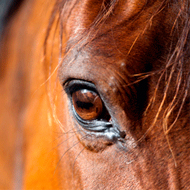Equine charities sign Memorandum of Understanding

"Equine vets, equipped with the necessary skills, have a fundamental role to play in China’s expanding equestrian market and beyond" - Roly Owers.
World Horse Welfare and The Donkey Sanctuary have joined forces with the China Horse Industry Association (CHIA) and the Chinese Veterinary Medical Association (CVMA) to improve equine welfare in China.
The four organisations signed a Memorandum of Understanding (MoU) on Monday (23 April) during the 15th World Equine Veterinary Association (WEVA) Congress in Beijing. Through their skills, expertise and strengths, the group hopes to bring about the highest international standards in equine welfare.
Donkey Sanctuary CEO Mike Baker said that the unique collaboration was a positive step forward for donkey welfare in the country. “Working with World Horse Welfare, CHIA and CVMA will be groundbreaking for equine welfare in China,” he said.
“This agreement is a great opportunity as China clearly needs support to develop the necessary equine veterinary expertise and the practising vets with specific donkey and horse knowledge and experience. This partnership will provide the chance to give these animals the healthcare they desperately need."
He continued: “We welcome the enthusiasm of CHIA and the equine sector involved with this event to improve animal welfare and it is so encouraging to see the massive strides being taken for better care of donkeys, horses and other animals.”
World Horse Welfare CEO Roly Owers said: “To make a difference we have to work in partnership and we are delighted to support China’s horse industry and their equine vets to help them reach the highest health and welfare standards.
“Equine vets, equipped with the necessary skills, have a fundamental role to play in China’s expanding equestrian market and beyond, and it is essential that they receive the training and support they need to be world class. Together we look forward to adding value to help improve the welfare of all equines in China.”



 The Animal and Plant Health Agency (APHA) has updated its online reporting service for dead wild birds.
The Animal and Plant Health Agency (APHA) has updated its online reporting service for dead wild birds.